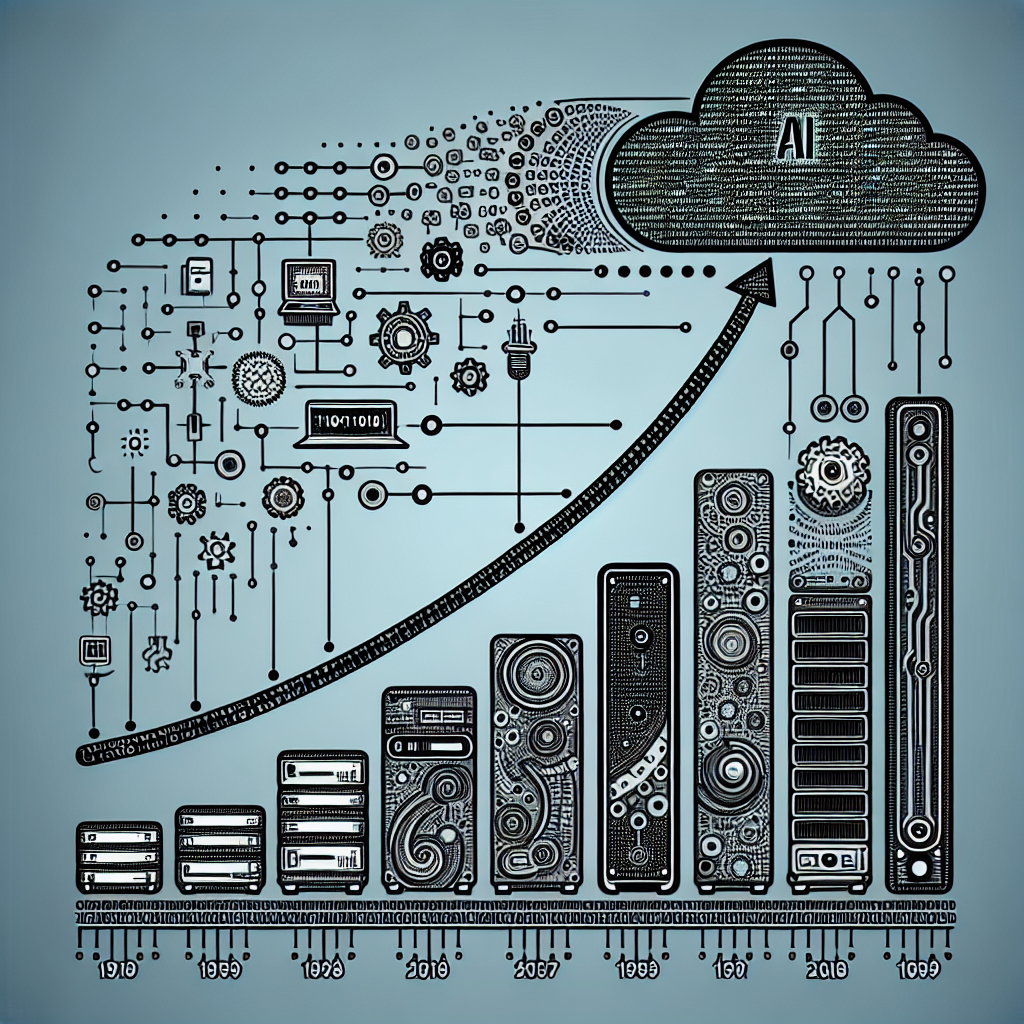The Evolution of AI Cloud Services
Artificial Intelligence (AI) has been one of the most transformative technologies of the 21st century. From self-driving cars to virtual assistants, AI has revolutionized numerous industries and changed the way we interact with technology. One of the key enablers of AI innovation has been the emergence of cloud services. In this article, we will explore the evolution of AI cloud services and how they have revolutionized the way we develop and deploy AI applications.
A Brief History of AI Cloud Services
The concept of cloud computing dates back to the 1960s, with the development of time-sharing systems that allowed multiple users to access a single computer. However, it wasn’t until the early 2000s that cloud computing began to gain widespread adoption, with companies like Amazon, Google, and Microsoft pioneering the development of Infrastructure as a Service (IaaS) and Platform as a Service (PaaS) offerings.
As AI technologies began to mature in the late 2000s, there was a growing need for scalable computing resources to train and deploy AI models. This led to the development of AI cloud services, which provide AI developers with the tools and infrastructure needed to build, train, and deploy AI applications at scale.
The Evolution of AI Cloud Services
The evolution of AI cloud services can be broadly categorized into three phases: AI Infrastructure, AI Platforms, and AI Services.
1. AI Infrastructure
In the early days of AI cloud services, companies focused on providing infrastructure resources like GPUs, CPUs, and storage to support AI development and training. These offerings allowed AI developers to access the computing power needed to train complex AI models without having to invest in expensive hardware.
Companies like Amazon Web Services (AWS), Microsoft Azure, and Google Cloud Platform (GCP) were among the first to offer AI infrastructure services, with offerings like AWS EC2, Azure Virtual Machines, and Google Cloud GPUs becoming popular choices for AI developers.
2. AI Platforms
As AI adoption continued to grow, companies began to develop platforms that provided higher-level services for AI development and deployment. These platforms included tools for data preprocessing, model training, and model deployment, making it easier for developers to build and deploy AI applications.
Platforms like AWS SageMaker, Azure Machine Learning, and Google Cloud AI Platform have become go-to choices for AI developers looking to streamline their development workflows and scale their AI applications.
3. AI Services
The latest phase of AI cloud services has seen the emergence of AI services that provide pre-trained models and APIs for common AI tasks like image recognition, speech recognition, and natural language processing. These services allow developers to quickly integrate AI capabilities into their applications without having to train their own models.
Companies like IBM Watson, Amazon Rekognition, and Google Cloud Vision have been at the forefront of this trend, offering a wide range of AI services that can be easily integrated into existing applications.
The Benefits of AI Cloud Services
AI cloud services offer a number of benefits for AI developers and organizations looking to leverage AI technologies. Some of the key benefits include:
Scalability: AI cloud services provide access to scalable computing resources that can be easily scaled up or down based on the needs of the application.
Cost-effectiveness: By leveraging cloud services, AI developers can avoid the upfront costs of purchasing and maintaining expensive hardware, making it easier to experiment with new AI technologies.
Ease of use: AI cloud services come with pre-built tools and APIs that make it easy for developers to build and deploy AI applications without having to worry about the underlying infrastructure.
Integration: AI cloud services can be easily integrated with existing applications and workflows, allowing organizations to leverage AI technologies without disrupting their existing processes.
AI Cloud Services FAQs
Q: What are some of the most popular AI cloud services providers?
A: Some of the most popular AI cloud services providers include Amazon Web Services (AWS), Microsoft Azure, Google Cloud Platform (GCP), IBM Watson, and Salesforce Einstein.
Q: What types of AI services are available on cloud platforms?
A: AI cloud services offer a wide range of services, including image recognition, speech recognition, natural language processing, sentiment analysis, recommendation engines, and more.
Q: How can organizations get started with AI cloud services?
A: Organizations can get started with AI cloud services by signing up for an account with a cloud provider, exploring the available services and tools, and experimenting with building and deploying AI applications.
Q: What are some of the challenges of using AI cloud services?
A: Some of the challenges of using AI cloud services include data privacy and security concerns, the complexity of integrating AI services into existing applications, and the need for specialized skills to develop and deploy AI applications.
In conclusion, AI cloud services have played a crucial role in driving the adoption and innovation of AI technologies. By providing scalable computing resources, pre-built tools, and APIs for common AI tasks, cloud providers have made it easier for developers and organizations to build and deploy AI applications at scale. As AI technologies continue to evolve, we can expect to see even more advanced and specialized AI cloud services that will further accelerate the development of AI applications across industries.

